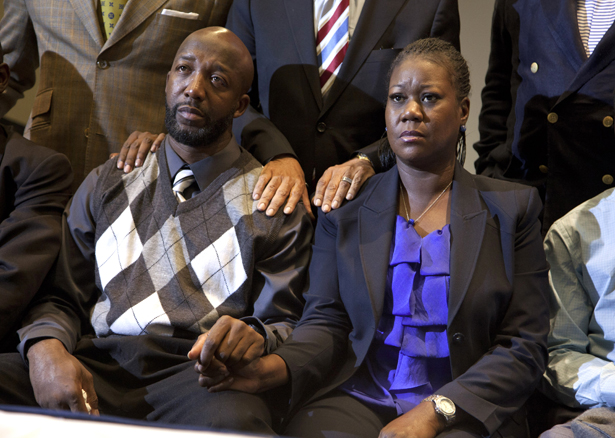
The parents of Trayvon Martin, Sybrina Fulton, right, and Tracy Martin hold hands as they watch a news conference in Washington with special prosecutor Angela Corey in Sanford, Fla., announcing charges against George Zimmerman on Wednesday, April 11, 2012. (AP Photo/Evan Vucci, Pool)
Editor’s Note: This article first appeared at The Guardian. Read the full text here.
George Zimmerman is behind bars. Six weeks after he shot Trayvon Martin, the state of Florida has been pressured, from above and below, to at least contemplate the notion that a man who killed an unarmed child might have a case to answer. He has now been charged with second-degree murder.
What follows from here has the potential to be every bit as divisive as the OJ Simpson trial and every bit as inflammatory as the Rodney King case—only this time there’s a black president in an election year. Blacks and whites already understand this case differently. A recent Newsweek poll showed that 80% of black Americans thought Martin’s death was racially motivated and 78% thought Obama’s comments about the shooting were appropriate. The figure for whites was 35% and 28% respectively. In the caffeinated, disaggregated world of cable news and blogs, where people feel entitled to their own facts, the details that emerge will only deepen these fissures.
Given that it was political pressure that made the trial possible, it would be naive to suggest that, now Zimmerman is in the hands of the law, his fate is now merely a legal matter. The "stand your ground" law was political, as are the lax gun laws, and the issues of race that have propelled this case to international news. This is the state where the courts decided the presidency in 2000. The law is already politicised.
….
Editor’s Note: This article first appeared at The Guardian. Read the full text here.


